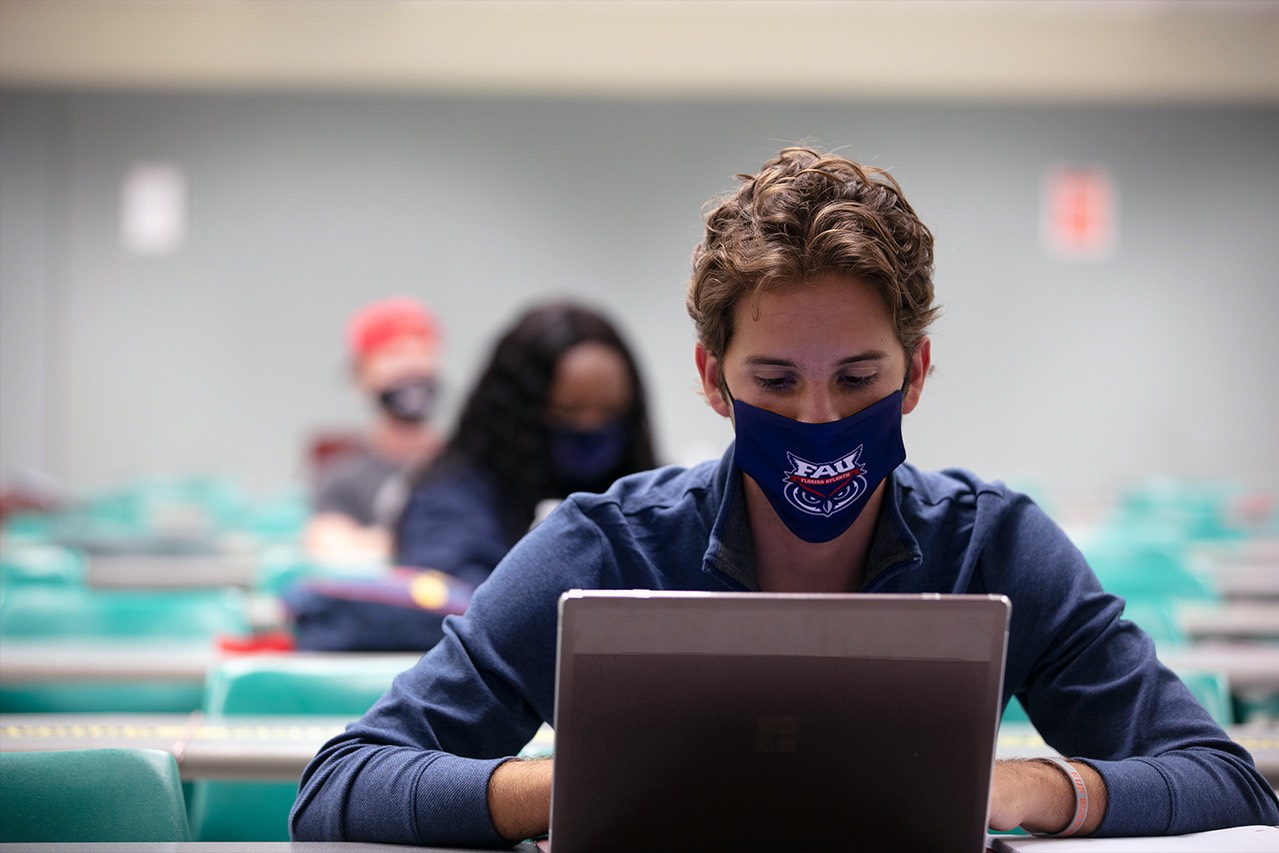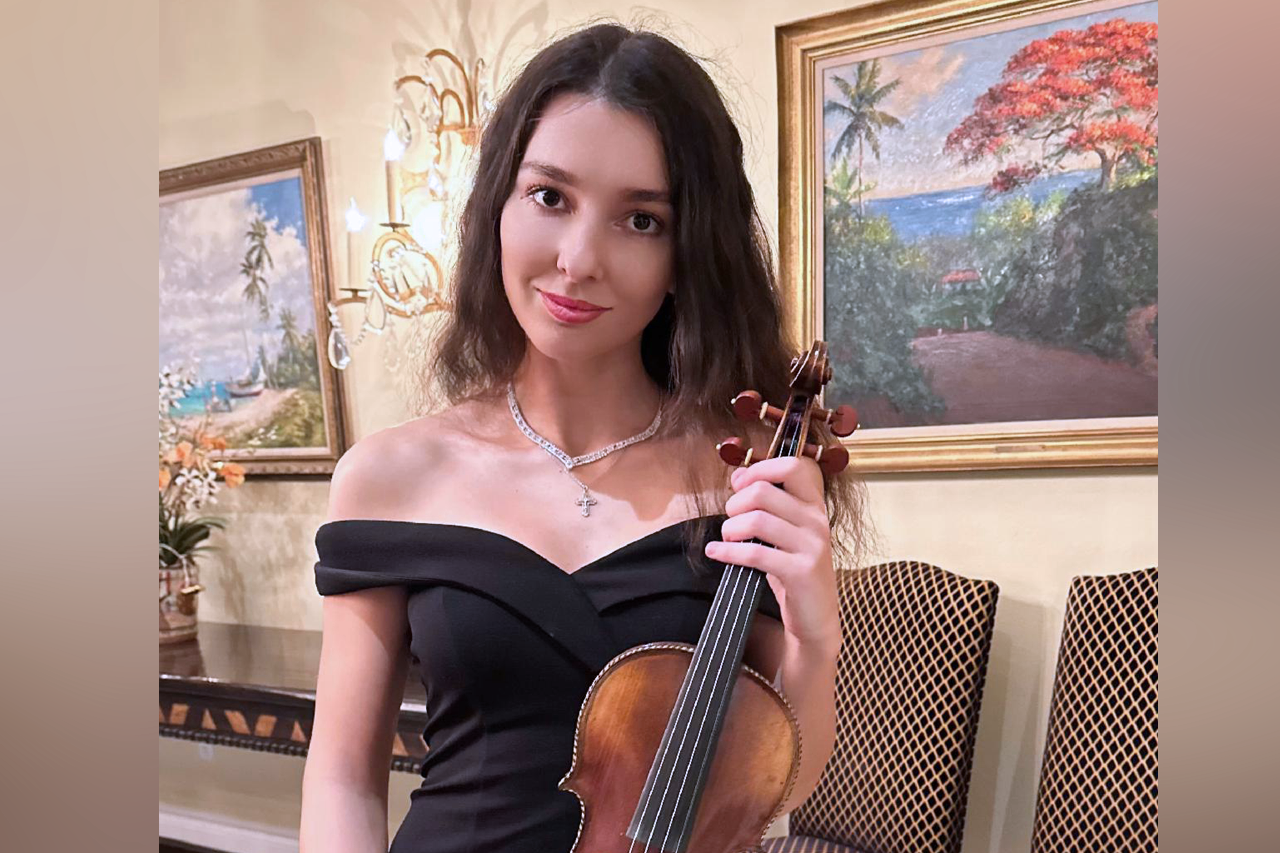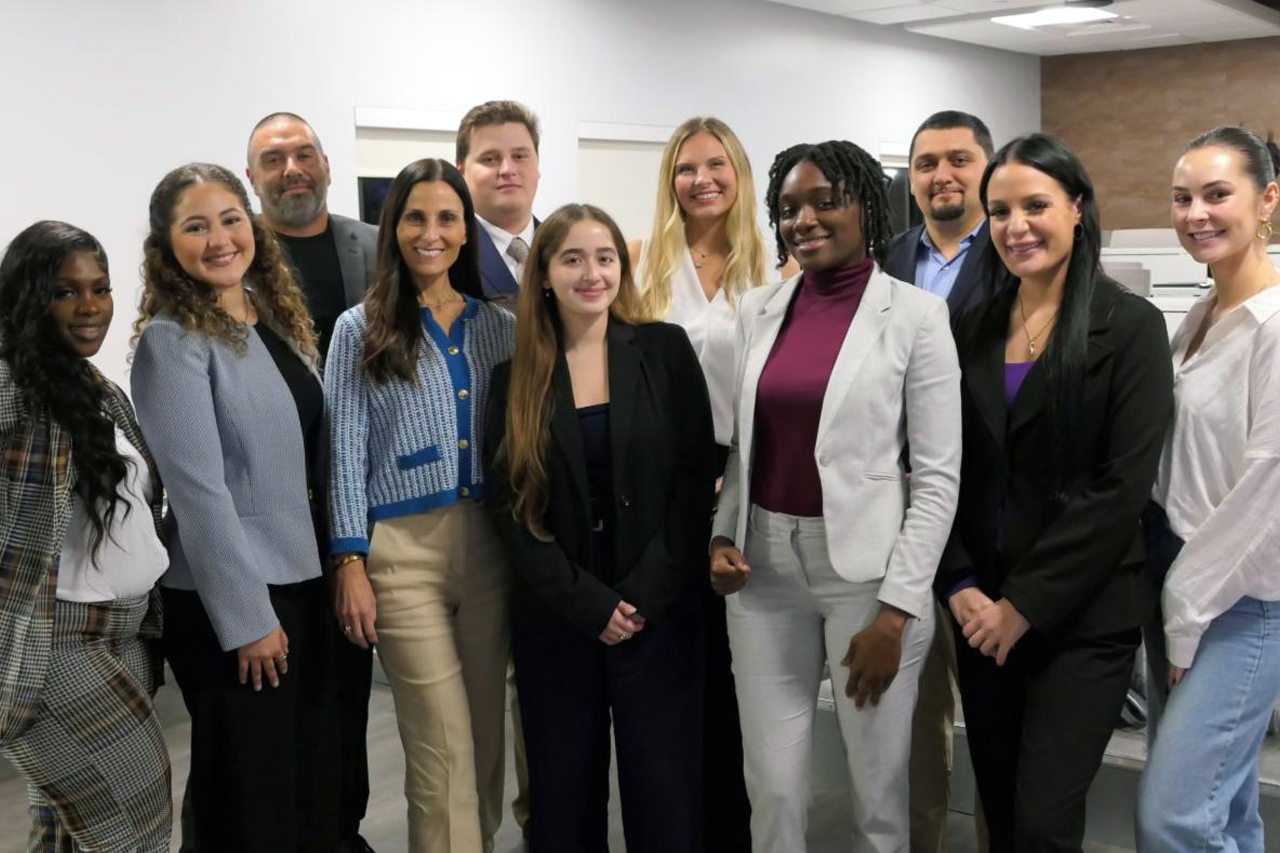PJHR Announces Courses Taught by Faculty Affiliates for Spring 2021
Wednesday, Oct 28, 2020
Spring 2021 Courses and Descriptions - PJHR Faculty Affiliates
ANT 4409 Anthropology of Peace and Violence
Dr. Max Kirsch | T/Th 2:00-3:20 p.m. (Online)
This course will explore the meaning and forms of violence that are a part of our daily life in our culture and globally. It is a broad subject that has engendered many debates and ideas about human behavior, not all of which we will have time to explore and discuss. What we will do is ask some general but directed questions about violence and its genesis, and we will do so not only through the traditional academic discussions of violence and its causes, but also by exploring some of the forms of popular culture in which violence plays a prominent role, representing the dominant culture as a whole. Thus, we will watch popular movies and read novels that contain forms of violence while asking how violence becomes part of our daily lives and how we attempt to reconcile this fact with other building blocks of culture that we use to reproduce our social networks, households, and communities. Some of the questions we will address include: 1) How is violence defined by its victims as well as those who use it against individuals, groups and communities, 2) How does state-sponsored violence (i.e. war) differ from terrorism? What does militarization do to communities and their existing social fabric? 3) What marks the effects of violence on individuals and peoples? How do categories such as ethnicity, gender and race affect the propagation of violence, from domestic violence to slavery to genocide? Violence is generally discussed as physical acts among individuals, groups or nations. Along with the questions posed above, this class will explore the more subtle forms of violence, particularly the structural and symbolic violence that are inherent in diverse forms of inequality and unequal access to societal resources. Violence is inherently integrated into larger processes of political economy and social life. Through case studies and cross-cultural analysis, we will analyze how violence and domination become internalized, expressed in the politics of everyday life and accepted by cultures around the globe. We will also explore the various levels of violence, from global to family violence. Finally, we will explore the resistance to violence and how communities of resistance develop solidarity and the will to fight for and maintain basic tenets of human rights.
ANT 4469 Culture, Gender and Health
Dr. Mary Cameron | Asynchronous online
This medical anthropology course examines the impact of sex differences and gender inequalities on the health status of women and men, their access to health care resources, and their roles as healthcare providers in a variety of cultures.
ANG 6930/WST 6615. Gender, Health and Power
Dr. Mary Cameron | Th 7:10-10:00 p.m. (Hybrid)
This course interrogates the role of power in health and healing in three main ways. First, students will examine power relations based on gender, ethnicity, class, caste, religion, and national identity in shaping the health status, illness experiences, and medical options available to people in local communities around the world. Second, the structural mechanisms of healthcare disparity for individuals, families, communities and nations will be linked to such powerful influences as bio-commodification and trafficking, the global organization of capital and labor, international healthcare development, the pharmaceutical industry, and global reproductive technologies. Finally, we will come to understand how the power to heal (and in some cases to become ill) becomes inscribed in shifting identities of person and self. Readings are drawn from award-winning ethnographic and critical analytical studies of the opioid epidemic and of mental health care in the United States, food and body in India, mental health care in Brazil, AIDS and masculinity in Uganda, epilepsy among Cambodian immigrants, Ayurveda and modern medicine in Nepal, and reproductive technologies in Egypt. The course concludes with a study of the women’s health movement in the United States.
CCJ 4694 Human Trafficking: A Global Justice Issue
Dr. Calli M. Cain
Section 001: T 12:30-1:50 p.m. (Hybrid)
Section 002: Asynchronous online
This course is an examination of modern-day slavery, or human trafficking. Students will learn about the various types of human trafficking, including sex and labor trafficking, debt bondage, forced marriage, child soldiering, and trafficking in persons for the purpose of organ removal. Students will also learn who the offenders and victims are, the trauma experienced by victims, the national and global scope of the problem and the role that governments, the criminal justice system, media and culture play in this global issue.
CJE 4610-001 Fundamentals of Criminal Investigation
Dr. Seth Fallik | Th 8:00-10:50 a.m. (Mostly/Mixed Online)
This course is designed to provide students with an understanding of the fundamentals of criminal investigations, blending scientific theories of crime detection with practical approach techniques. The course also covers both the rules of law as well as the ethical and legal obligations of the investigator.
COM 4707-001 Peace, Conflict and Oral Narrative
Dr. Caren S. Neile | T/Th 6:30-7:50 p.m. (Hybrid) 3
How and why is it possible to address conflict using ritual, symbolism, imagination and performance? This unusual class combines conflict and performance theory with interactive practice (e.g., improvisational theater and storytelling) to explore how mediators, activists and others understand the arts, particularly storytelling, as a tool for bridging differences and building peaceful relationships and communities.
CPO 4033 Global Development and Inequality of Nations
Dr. Annette LaRocco | W/F 12:30-1:50 p.m. Room CM130 (Hybrid)
Over seven billion people share the planet but economic wealth, access to land and resources, and the political power to determine the haves and haves not on a global scale remains highly unequal. This course is designed to comprehensively explore contemporary political and economic challenges of countries in the Global South, and the ways in which these situations are inextricably tied to an international system dominated by countries in the Global North. This course takes seriously the fact that theories and concepts of development are many, varied, and contested. It interrogates how development as a political idea is conceptualized and measured, with an eye to the way historical power dynamics inform contemporary politics of development. It does so by engaging with development institutions, legacies of colonialism and imperialism, and contemporary ideological trends like neoliberalism, among others. This course deals with states in the international system, but also identifies peoples, environments, resources, institutions, corporations, and communities as key actors in global development.
EDF 2085-001 Introduction to Diversity for Educators
Dr. Melanie Acosta | M/W/F 9:00-9:50 a.m. (Hybrid)
Writing Across Curriculum (Gordon Rule)
Examines how various ethnic/cultural groups are served in U.S. schools. Multicultural content and materials incorporated into various disciplines are surveyed. A field experience component in a culturally diverse school/setting is required.
EDF 2854 The Educated Citizen in a Global Context
M 4:00-6:50 p.m. (Hybrid) Dr. Alicia Haywood
T 4:00-6:50 p.m. (Hybrid) Dr. Paul Massy
(Intellectual Foundations Program; Introductory course for Diversity and Global Studies Certificate)
A critical examination of education as a human right through investigation of educational purpose, policy, and practice in international contexts. The impact of colonization and modernization and their challenges will be examined.
EDF 2930-001 Educational Inquiry into the Culture of Sports
Dr. Hoang Tran | Th 4:00-6:50 p.m (Hybrid)
This course explores the nuanced interactions of race, ethnicity, social class, and gender and sexuality – studying the ways in which American sports constructs an integrative discourse while, at times, simultaneously reproducing existing stereotypes, institutional structures, and social inequality.
EDF 3610 Education in a Multicultural Society
Dr. Dilys Schoorman
M 4:20-7:00 p.m. (Hybrid)
T* 11:00 a.m.-1:50 p.m. (Hybrid)
Approved elective in the Diversity and Global Studies Certificate. This course explores historical perspectives on issues central to education in the context of diversity at the local, national and global levels. Students conduct research on topics in multicultural and global education that highlight the experience and perspectives of under-represented groups. This course is open to all students of diverse disciplinary backgrounds interested in matters of equity and social justice in society. *Tuesday section can be cross-listed for graduate credit.
EDF 4802-001 Community Engagement for Global Consciousness
Dr. Hoang Tran | Th 11:00 a.m.-1:50 p.m. (Hybrid)
Capstone Course in Diversity and Global Studies Certificate.
Prerequisite: EDF 2854
An Academic Service Learning (ASL) course in which students critically reflect on their roles as emergent professionals and decision makers in a changing world through the study of a range of global challenges and opportunities pertinent to democracy, sustainability and social justice. Students complete a community engagement project as part of the ASL requirement (15 hours).
INR 4075-001 The Politics of Human Rights
Dr. Angela D. Nichols | W 1:00-2:20 p.m. (Hybrid*)
Many of today's interesting and important political events involve the violation of human rights and the various attempts by the international community to protect those rights. This class provides an understanding of how and why these violations occur, and of why international attempts to protect human rights succeed or fail. With that in mind, this course is designed to introduce you to the historical foundations and current practice of protecting human rights. *In-person option available at Davie campus.
INR 4932-001 Women & Conflict
Dr. Angela D. Nichols | M 4:00-6:50 p.m. (Hybrid)
When do women pick up arms and actively engage in conflict? A new body of work in conflict studies explores the characteristics of rebel groups that make them attractive to women. While some literature asserts that women are more pacific and less likely to engage in conflict than men, women increasingly participated in armed conflict. This course examines the causes and consequences of women's participation in conflict and the post-conflict period, as well as the impacts of war on women in general. Issues examined include gender norms, sexual violence, forced recruitment, women's roles during and after conflict, women's leadership roles, as well as the implications of women's participation in the peace process.
LIT 4920 Global Environments
Dr. Stacey Balkan | W/F 12:30-1:50 p.m. (Hybrid)
As a study in Global Environments, this course will explore the intersecting histories of aesthetic expression, landscape ideology, empire, settler-colonialism, Indigenous dispossession, and historical trauma. We shall likewise question popular understandings of “environment” and “nature” that have historically privileged such lofty aesthetic traditions as “wilderness” over the economic imperatives of survival, or habitability. The latter is vital to communities of so-called “eco-system people,” many of whom practice what environmental historian Ramachandra Guha describes as an “environmentalism of the poor.” Such questions are also central to communities throughout the Global North in which municipalities lack safe drinking water, and the working poor often find themselves living adjacent to sites of extreme toxicity. Among the many questions animating the course, we shall ask: how do we bring together the historically polarized and polarizing discussions around Postcolonialism and Environmentalism? Furthermore, how, in an era marked by cataclysmic shifts in our global climate can we begin to think collectively about the fate of our species without ignoring the long history of combined and uneven development that has rendered postcolonial states more vulnerable to the exigencies of climate change? And finally, how might we follow thinkers like Sylvia Federici in imagining not a “planet of slums” but a “planet of the commons”? That is, how might we imagine a future beyond apocalypse—or that which plagues local cinema outlets and television screens. Thinkers, artists, and activists, including Aimé Césaire, Jamaica Kincaid, Arundhati Roy, Rob Nixon, Ashley Dawson, Françoise Vergés, Anna Tsing, Mahasweta Devi, Indra Sinha, Ken Saro-Wiwa, Tommy Pico, Jamaal May, Adrienne Marie Brown, Simon Ortiz, Ross Gay, and Amitav Ghosh will serve as our guides as we explore the lasting impact of colonial-era systems of land tenure and monoculture on postcolonial states (including the United States).
POS 3626 Honors Privacy
Dr. Mark Tunick | T/Th 12:30-1:50 p.m. (Online)
(Honors standing or permission of instructor required)
The seminar focuses on U.S. law regarding government and individual invasions of privacy. We explore the value of privacy, the role of technology in shaping societal expectations of privacy, and how we are to weigh the competing interests we have in privacy on the one hand, and in publicity, access to information, crime control, and national security on the other. Our approach is interdisciplinary: readings draw on philosophy, social history, anthropology, literature, economics, legal scholarship, and case law.
SOW 3232 Social Welfare Policy and Provisions
Dr. Precious Skinner-Osei | Asynchronous online
This course is an analysis of social welfare policies and provisions within the context of the history of social welfare, income maintenance, housing, employment, health care, child welfare, and other special populations. Social Welfare Policy and Provisions is a required course in the BSW program. This course will focus on how human service policies and programs are designed to address specific social problems in the United States. Key professional competencies, diversity, justice, critical thinking, and evidence-based practice are emphasized. The course examines historical and current state and federal social welfare policies and programs aimed at alleviating those social problems. The historical precedents of our current American values and philosophies will be identified to more fully understand the dilemmas facing the social work profession and its providers of service. The social problem-social policy framework will be applied to specific problem areas, including anti-poverty programs, child welfare services, health, and mental health services, rehabilitative services, housing services, and services supporting the aging. There will be an emphasis on developing an awareness of and an ability to critique and promote social policies in terms of their sensitivity to cultural diversity and populations-at-risk. By examining historical and contemporary perspectives and concepts, this course prepares students to describe and analyze social welfare policies and services.
SOW 6158-001 Conflict Resolution
Dr. Allan Barsky | M 9:00-11:50 a.m. (Online)
Conflict is a natural and common phenomenon in social interaction. This course is designed to provide developing helping professionals and other learners with theory and practice skills to engage people in creative and collaborative conflict resolution processes, including negotiation, mediation, facilitation, advocacy, and restorative justice. Learn how to promote peace and social justice using interest-based, transformative, and therapeutic approaches to conflict resolution with individuals, families, groups, organizations, and communities.
WST 3930 Gender and Climate Change
Dr. Jane Caputi | Th 2:00-4:50 p.m. (Online)
This course explores how gender inequality across the globe is related to environmental damage and climate change. It accepts as fact that global climate change is real, ongoing, and driven by human activities, and examines how ecological health and a sustainable future depend upon gender equity and the empowerment of women, girls, and LGBTQ+ people. The course is organized around three core units. The first surveys the feminist critique of heteropatriarchal gender domination, including the assumption that humanity’s mission is to conquer nature. The second investigates how women are made particularly vulnerable to ecological disasters by interrogating how the global oppression of women intersects with key issues including consumption, waste, energy, health, migration, tourism, transport, and reproduction. The third discusses how women and LGBTQ+ people worldwide theorize, organize, act, and resist, constituting the core of the global climate justice movement.


